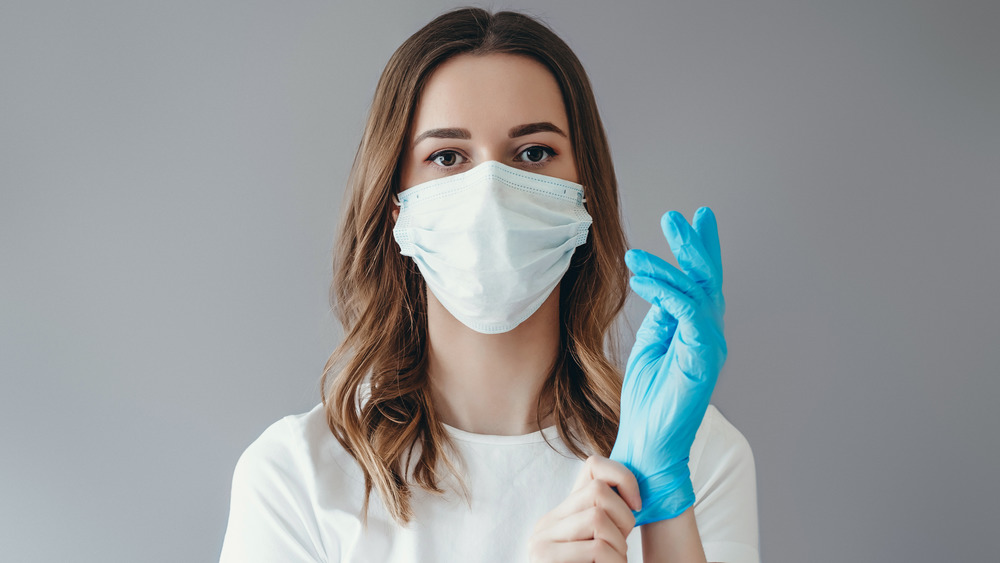When You Wear Gloves Every Day, This Is What Happens To Your Body
https://www.healthdigest.com/3...Many of us have been told or heard that wearing gloves is a great way to prevent infection. To a degree, that's true — if you've ever been a to a doctor's office or to the office of another medical professional, then you've probably noticed everyone who works there changes out their gloves each time they treat a new patient. But have you ever wondered what happens to someone's hands when they wear latex or vinyl gloves every single day?
The National Center for Biotechnology Information (NCBI) published a study in August 2002 that explored exactly that question. The team specifically explored the practice of wearing gloves during dental surgery and whether or not the technicians and surgeons who do so suffer any effects on the skin of their hands as a result. The study followed 50 dental healthcare workers who all met the same criteria: They worked at least eight hours a day at least four days a week.
Their hands "were assessed by clinical examination and by transepidermal water loss at baseline" one month into the study, and again at three months.
Here's what happens when you wear gloves every day
Of the dental healthcare workers who took part in the study, 26 wore non-powdered latex gloves and 24 wore a nitrile glove (via NCBI). The end result might surprise you, or it might not: Absolutely no differences were found between the two groups, nor were there differences between the groups who wore gloves and a separate control group that did not. In other words, wearing latex or vinyl gloves every day does little to change anything physical about the skin on your hands.
The study also looked at whether or not wearing two gloves at a time on each hand has any impact on the overall health of the hand and its skin, and found it did not.
Of course, as the Center for Disease Control and Prevention (CDC) notes, the practice of wearing gloves is essential for healthcare workers to avoid infection or infecting others, and the study definitely is not suggesting otherwise.

